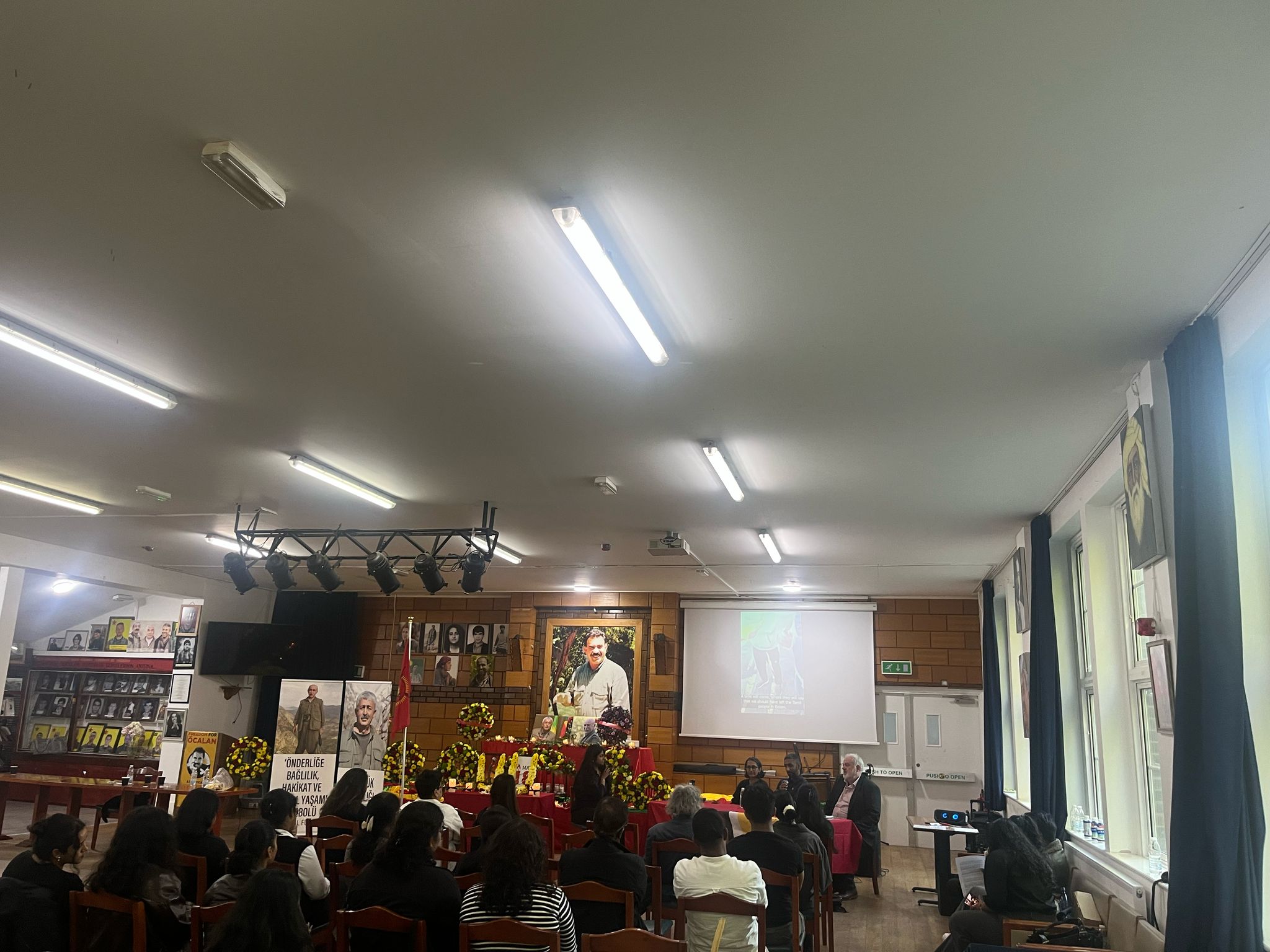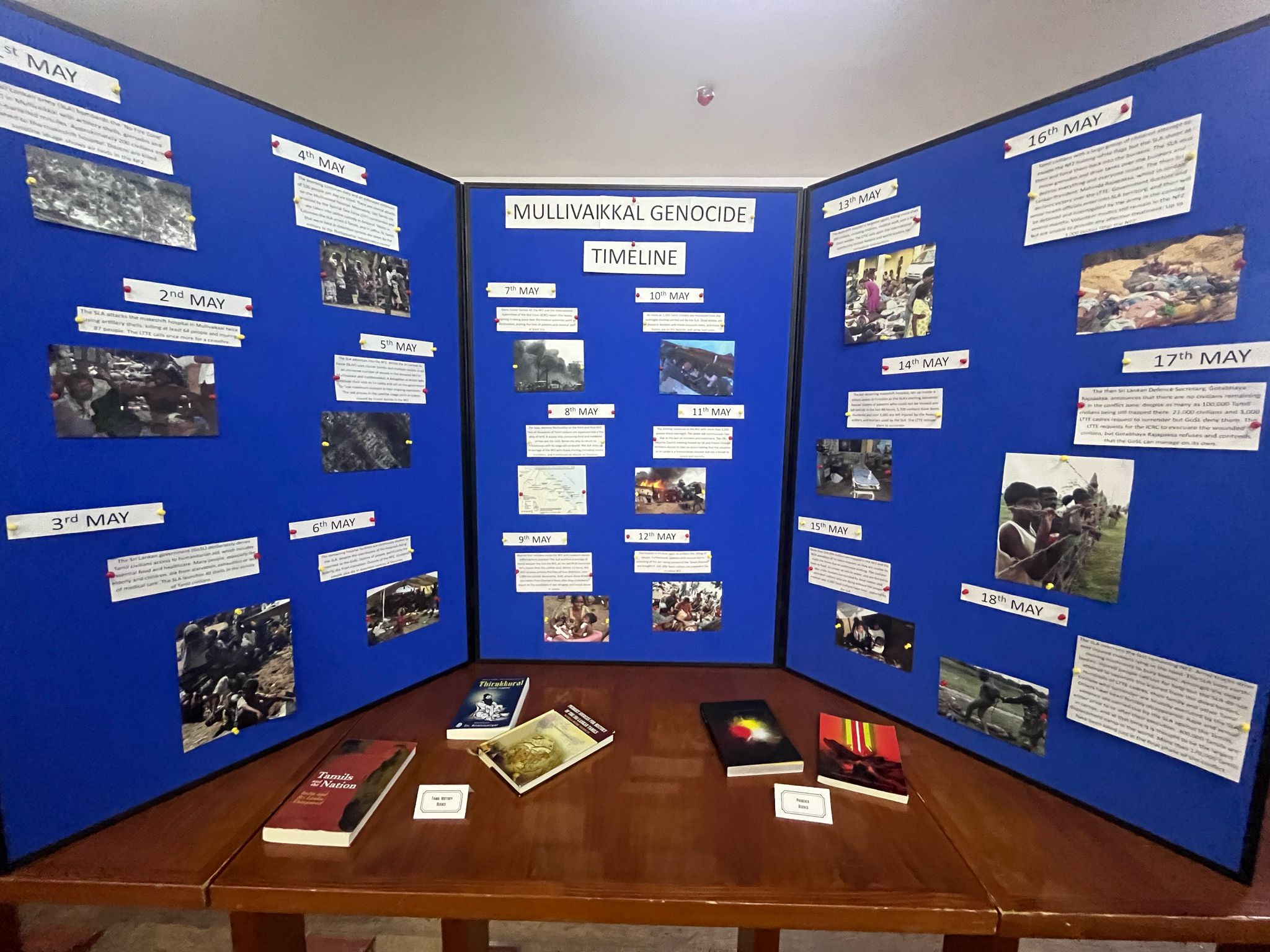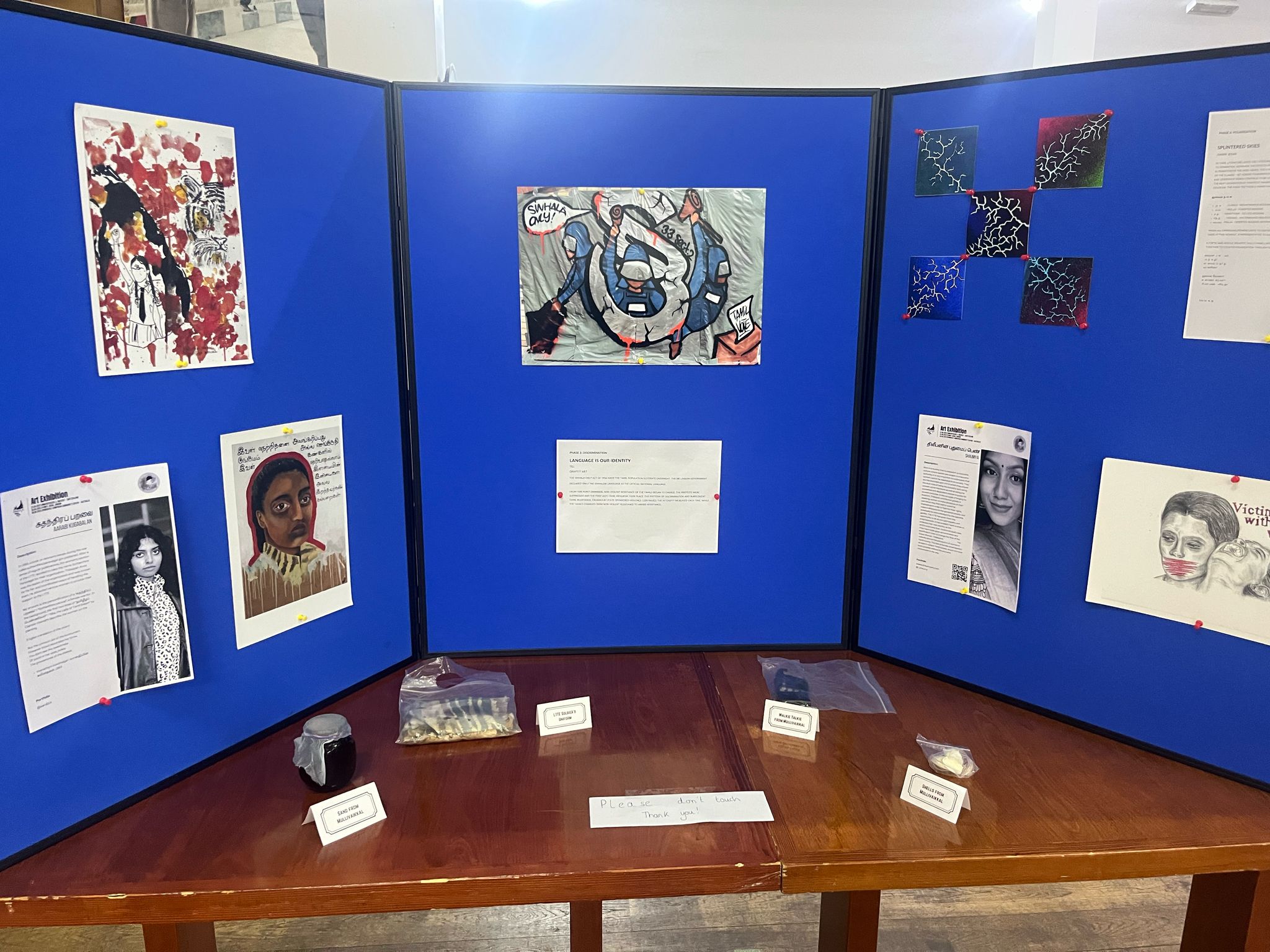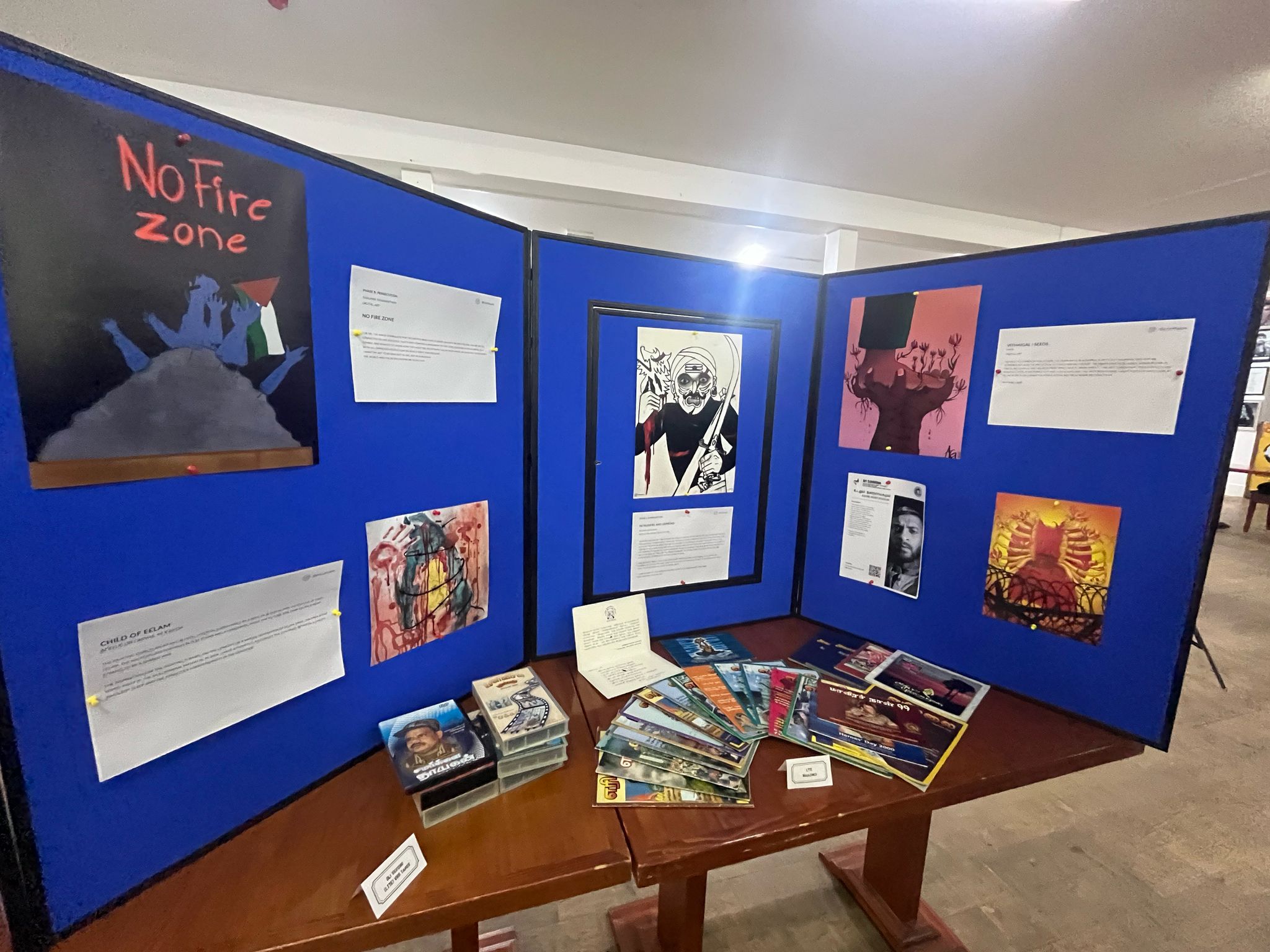
Marking the 16th anniversary of the Mullivaikkal genocide, Pheonix held a screening of the documentary, “No Fire Zone”, and a panel discussion at the Kurdish Community Centre.
The panel’s speakers included Dr. Thusiyan Nandakumar, Dr Mathura Rasaratnam & Dr Andy Higginbottom.
Inspiration for activism

Asked by the Chair about their inspiration for political activism, Nandakumar noted how his life and political views were shaped by the atrocities in Sri Lanka. He notes he became a full-fledged activist in the face of Mullivaikkal.
Rasaratnam similarly noted that her first political action was around 1995, in the aftermath of continued government atrocities. Whereas, Higginbottom detailed his interest in revolutionary politics as a youth.
Both Rasaratnam and Nandakumar stressed that they are inspired by the continued resilience and determination of Tamil activists in the homeland who continue to protest government atrocities.
Reflections on Mullivaikkal

Reflecting on the Tamil genocide, Rasaratnam noted that in 2009 the conditions were primed to enable the Sri Lankan state to carry out its genocide. However she maintains that it is darkest before the dawn and that she draws strength from the continued resistance by Eelam Tamils in the homeland across the globe.
Nandakumar detailed his own experience of the 2009 protests. In his reflection, he stressed that despite the genocide, the Sri Lankan state was not able to extinguish the demand for Tamil self-determination. Tamils continue to resist to this day.
“What scares the Sri Lankan state most is the continued ability of Tamils to organise and resist” Nandakumar stated. Rasaratnam noted that this occurs despite the intense militarization across the North-East.
Higginbottom similarly noted his disgust at how western leaders enabled the genocide to take place and sabotaged the peace process.
Remembrance as a political act

Asked on how we prevent Mullivaikkal from just becoming a symbol of suffering and ensure its a tool for political mobilisation.
Nandakumar stressed that we should listen to the survivors who continue to resist the Sri Lankan state. He further noted that these types of events remain political and that the act of remembrance is political.
Solidarity
Higginbottom stressed that activism should be unifying and noted the continued similarities of the Mullivaikkal genocide and the genocide in Gaza.Nandakumar noted the Tamil-Kurdish solidarity in 2009 and that Kurdish communities rallied in 2009 to oppose the Tamil genocide. Rasaratnam highlighted the need to build connection with Palestinian organisations because of the common struggle against genocide. She further noted how close the Nakba and Mullivaikkal remembrance are.
Rasaratnam noted that as the global power dynamic shifts we must question what a justice system would look like for oppressed people. The Tamil homeland remains under occupation. She noted that in considering justice for Tamils the first step should be to end the occupation.
Genocide recognition and the UN process
Commenting on the arduous UN process, Rasaratnam stressed that one benefit is that there have been three separate UN reports establishing the facts of what happened. Nandakumar added to this stressing that the facts have allowed for increasing global recognition that what occurred was a genocide.
